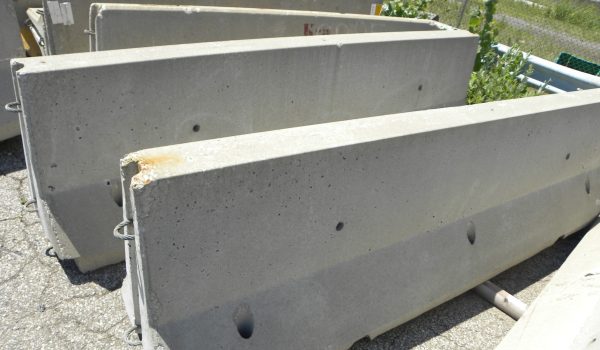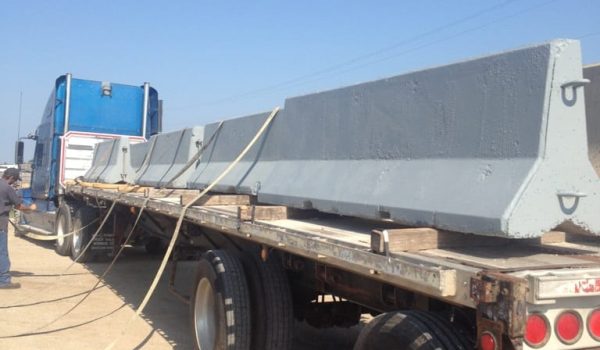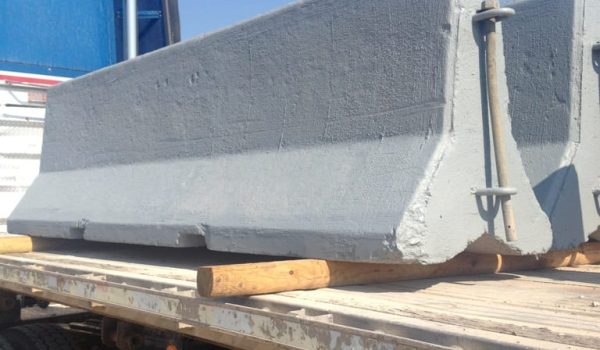
n

n

n
Delivery and Transportation of Concrete Barriers
The cost of transportation is a significant consideration as it remains constant regardless of the number of barriers being transported. Consequently, it is most cost-effective to order full loads—either 11 Jersey barriers, nine “F” style barriers, 14 of the Texas-10 barriers. This strategy minimizes per-unit shipping costs, providing substantial savings. If a project initially requires eight barriers but later needs two additional barriers, the cost of shipping those additional barriers could equal the cost of the barriers themselves due to the fixed nature of trucking expenses. Planning ahead for potential needs and ordering a full load initially can avoid these extra costs.
Installation Considerations
For added stability, we can provide both new and used connector pins, which help align and lock the barriers together, creating a continuous barrier line. These connectors are crucial for maintaining the integrity of the barrier formation, particularly in high-traffic or security-sensitive environments.
Comprehensive Installation Services
Understanding that the installation of such heavy barriers can be challenging, we offer complete installation services to ensure that the barriers are set up safely and correctly. Our team is equipped to handle all aspects of the installation process, from the initial placement and alignment of the barriers to the final securing with rebar and connector pins. We are prepared to meet the specific needs of your project, whether it involves temporary setups for events or more permanent installations for construction sites and traffic control.
Client Consultation and Support
We encourage clients to discuss their specific requirements with us during the planning phase. This consultation ensures that all aspects of delivery, transportation, and installation are tailored to meet the project’s unique needs, reducing unforeseen complications and costs. Our goal is to provide a seamless service that addresses all logistical challenges, ensuring that your project remains on schedule and within budget.
Delivery
Transportation
Concrete barriers are normally transported on flat bed trailers. Since concrete barriers are especially heavy, the typical steel flat bed trailer can only legally handle 10 Jersey barriers, or 9 “F” style barriers (on occasion, 12 Jersey barriers can be shipped on an aluminum trailer).
Whether one or 10 barriers are delivered, the trucking cost is the same. Thus, try to purchase barriers in lots of 10 Jersey barriers or 9 “F” style barriers to minimize your trucking expense. If you think you need eight Jersey barriers and you order eight, and it turns out you need two more, your shipping cost for the additional two barriers will often be as much as the cost of the two additional barriers!
Installation
Although each barrier weighs approximately 4,000 pounds, some customers prefer that we drill into the asphalt or concrete and pound rebar into the ground to hold the barriers in place. Most barriers come already engineered to accept up to #8 rebar in six different places on the barrier. Additionally, we can provide either new or used connector pins. Let us know if you need us to handle installation.


